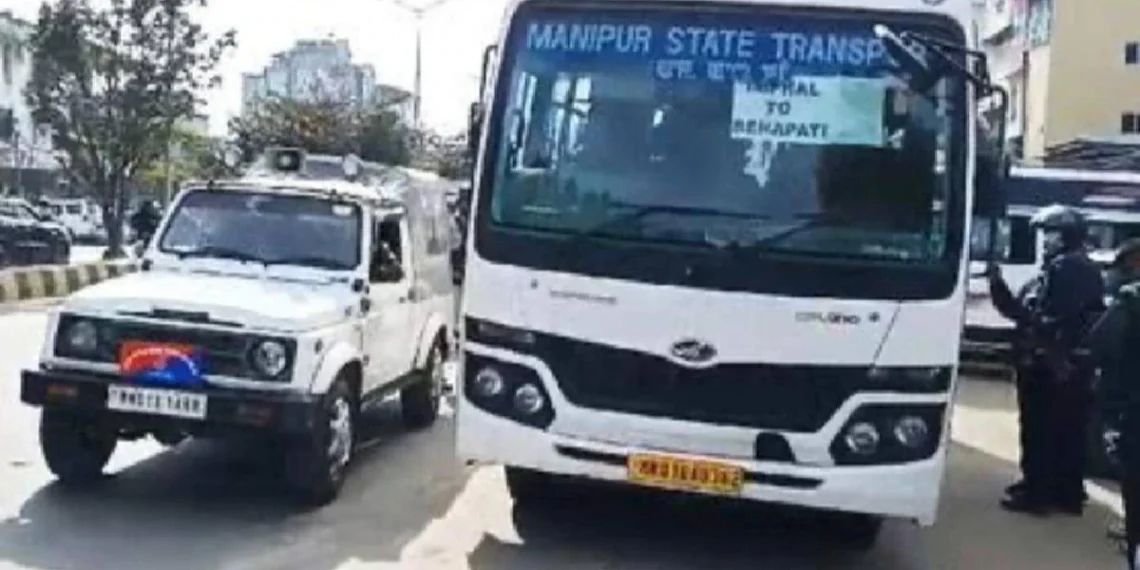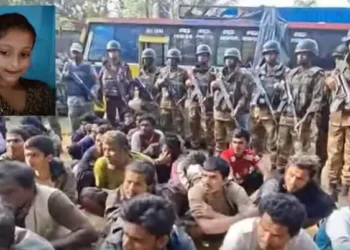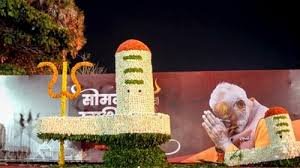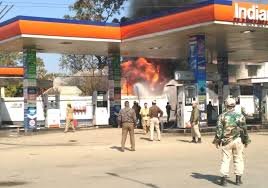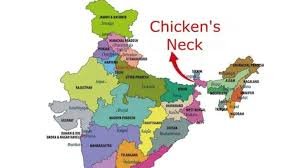Scheduled routes included buses from Imphal to Senapati via Kangpokpi and from Imphal to Churachandpur via Bishnupur. However, inquiries revealed that neither route saw any passengers, reflecting the region’s lingering mistrust and safety concerns. Both Kangpokpi and Churachandpur, which are predominantly inhabited by the Kuki-Zo community, have become epicenters of protests against the state government’s move.
Protests and 48-Hour Shutdown
A major roadblock to the transport resumption emerged on Tuesday afternoon when civil society organizations in Kangpokpi staged protests and announced a 48-hour total shutdown effective from midnight on December 3. This shutdown, enforced across the Sadar Hills region of Kangpokpi, was a direct response to what the Kuki-Zo community described as the government’s attempt to “forcefully normalize” the volatile situation.
Protesters, including local leaders and activists, expressed anger and accused the government of pushing a unilateral decision without addressing their concerns. They labeled the initiative a “bulldozed peace attempt,” alleging it disregarded the safety and well-being of their community.
The shutdown saw widespread participation, with shops, markets, and businesses closed and a demand for the suspension of government offices in the region. While educational institutions conducting exams were exempted, organizers warned of stricter measures, including restrictions on commercial vehicles, if the government failed to withdraw its decision.
Hundreds of Kuki-Zo women gathered at Gamgiphai, a strategic village bordering Kangpokpi and Imphal West, to prevent any attempts to implement the government’s decision.
Addressing the media, Ng. Lun Kipgen, spokesperson for the Committee on Tribal Unity (CoTU), said the Kuki-Zo community was strongly opposed to what he called a “partisan and baseless” government directive.
Government’s Appeal Fails to Gain Traction
Ahead of the resumption, the Manipur Home Department issued a public appeal stating that the government had assessed the law and order situation and decided to reinstate public transportation with sufficient security deployment. The appeal also encouraged the public to utilize the services, providing contact details for relevant district authorities.
The government stressed that these initial movements would be restricted to specific hours to ensure safety and sought cooperation from all stakeholders, requesting them to refrain from any violence or disruptions. However, these assurances failed to instill confidence in the people, as no passengers turned up on the first day.
Civil society organizations in Kangpokpi dismissed the appeal, asserting that it was an attempt to project a “false sense of normalcy” to the outside world while ignoring the ground realities.
Fragile Trust and Regional Tensions
The failed transport resumption highlights the deep mistrust and unresolved tensions in Manipur. The routes in question pass through sensitive areas: Kangpokpi and Churachandpur are Kuki-Zo-dominated, Imphal is Meitei-majority, and Senapati is predominantly inhabited by Nagas, who, along with the Meitei Pangals (Muslims), have remained largely neutral in the ongoing conflict.
The Kuki-Zo community’s resistance underscores their fear that the government’s actions may further compound the crisis rather than alleviate it. Protests have amplified their demand for meaningful dialogue and a resolution that considers their safety and autonomy.


